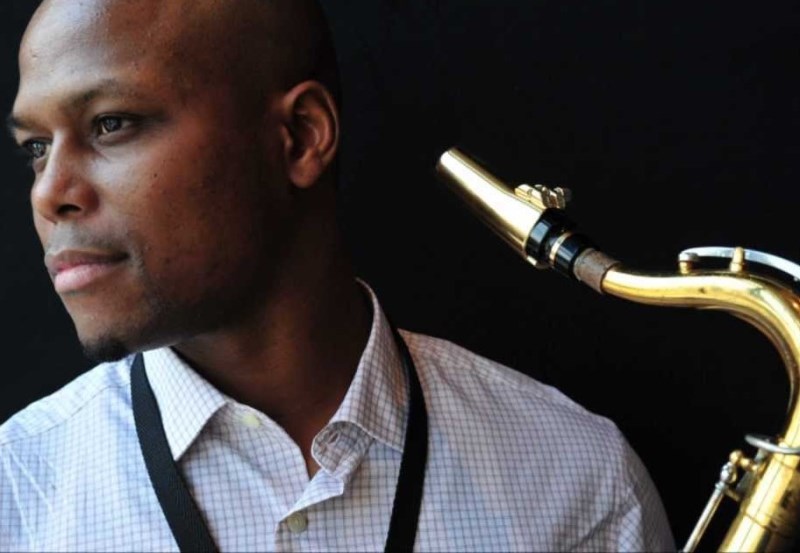Source: Dusted Magazine
Genre: Post-bop/Free Jazz
GAB's Rating: ★★★★★
Measured
from its title on down, Americana
marks an auspicious return to roots for tenorist JD Allen. A welcome reunion of
his core trio with bassist Gregg August and drummer Rudy Royston, it’s also an
explicit homage to the bottomless reservoir of musical and cultural precedence
from which they draw and transform. Central to that creative process is the
blues, the protean American song form that’s been integral to each of Allen’s
previous efforts, but is arguably at its apogee throughout the nine piece
program presented here.
“Tell
the Truth, Shame the Devil” swaggers along on a capaciously-girthed bass line
and the steady sway of Royston’s rolling beat as Allen’s tenor testifies on
top. The rich throaty cry that underlies his phrases harkens directly back to
the kind of Texas-honed tenor that was the parlance of Booker Ervin, deeply emotive,
but devoid of dime-a-dozen sentimentality. “Cotton” carries the substantial contextual
weight of its title on August’s lush strings and Allen’s somber melodic
delivery. Royston fills in the edges with clipped snare and cymbal accents and the
three players trace a winding, darkly swinging path through figurative
plantation acreage. The closing “Lillie Mae Jones” sits at the opposite side of
the impassioned spectrum with a sunny Coltrane-reminiscent motif serving as improvisational
spark and tinder.
“Bigger
Thomas” and “Lightin’” both work as vivid musical portraits of their respective
titular personages. The first references Richard Wright’s predestined literary protagonist
with a bright thematic line that repeatedly folds back in on itself against a
percolating rhythm to echo the inevitability brought about by societal
conditioning. The Texas bluesman answering to the surname Hopkins gets tribute
tinged with contrasting optimism on the second. Once again August and Royston
are each instrumental in framing Allen’s expressive leads with both weight and
texture. The title piece spools out from a blunt bass strum bracketed by
cymbals as tenor modulates moodily between light and dark.
Allen
positions two telling covers alongside the seven originals. Vera Hall’s “Another
Man Done Gone” has an indeterminate date of compositional origin, but a field recording
made by Alan Lomax in 1940 preserved the piece for posterity. As channeled into
sound through Allen’s downcast horn, August’s resonant arco ribbons and Royston’s
tumbling mallets, the resigned melancholy behind Hall’s anecdotal lyrics remain
intact. Bill McHenry, a saxophonist colleague of Allen’s, is the source for “If
You’re Lonesome, You’re Not Alone” the sole piece that operates independently
of conventional blues structures. As with earlier Allen outings, adherence to
customary LP length all but ensures the immediate impulse to cue the itinerary
up again for a repeat performance.
Derek Taylor
BUY IT @







